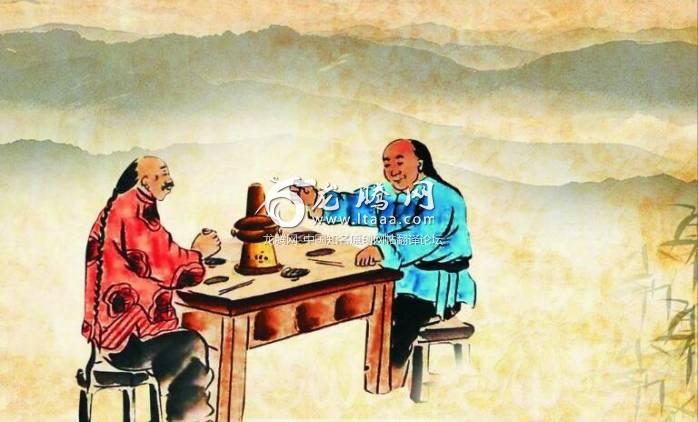中国是一个古老的文化可以教会我们很多,为什么我们还诋毁中国不向她学习?(上) [美国媒体]
quora网友:我觉得这个问题很有意思。意思是说中国文化从古代一直延续到今天,这种持久性肯定有值得学习的地方,然而我们(西方人?)却还是诋毁她。其他的答者称如今的中国没有古老文化,这点我是不赞同的。无数的文化人类学家都表明了中国的传统依然存在......
Why do we denigrate and not learn from China when it is such an ancient culture and can teach us so much?
中国是一个古老的文化可以教会我们很多,为什么我们还诋毁中国不向她学习?(上)
Matthew Haywood, Ph.D. Chinese Music, The Chinese University of Hong Kong (2022)
Answered Sep 22
I find this question interesting. The implication is that because Chinese culture has persisted from ancient times to today, there is something about its durability that is worth learning about, yet instead we (Westerners?) denigrate it.
I’ll just quickly say that I disagree with the other answers that claim China has no ancient culture today. Numerous cultural anthropologists have shown many ways in which Chinese traditions are rigidly persistent even despite the traumatising assault they received throughout the 20th century. Even if traditions have disappeared, they exist in other ways (i.e. texts, documentation) and are ready to be taken up again if people so desired.
Nonetheless, the assault Chinese traditional culture received in the 20th century is probably the reason why China is sometimes denigrated, both by foreigners and its own people. The key to understanding this is through looking at modernization and political differences.
Modernization
The so-called ‘classic’ theorists of modernization suggest that there is a ‘break’ between agricultural and industrial societies. These include transformations such as a shift in belief in superstition towards science, being family/community-focused towards being self-focused etc.
In every case, there is a belief that the modern has a more rational, progressive and inherently better way of life compared to the traditional that came before it.
The European countries were the first to go through this process and they set these terms. Due to scientific technological revolutions, this armed them with power. That power was then used to attack other places.
我觉得这个问题很有意思。意思是说中国文化从古代一直延续到今天,这种持久性肯定有值得学习的地方,然而我们(西方人?)却还是诋毁她。
其他的答者称如今的中国没有古老文化,这点我是不赞同的。无数的文化人类学家都表明了中国的传统依然存在,尽管20世纪的时候受到了巨大的破坏。即使传统消失了,它们也以其他方式存在着(即文本和记录),而且如果人们意愿够强的话还是可以重拾传统的。
然而,中国传统文化在20世纪所遭受的破坏或许就是有时中国被诋毁的原因所在了,包括外国人和本国人民的诋毁。理解这一点的关键在于了解现代化和政治差异。
1、现代化
The Western-style architecture of ‘The Bund’ in Shanghai is a great example of how China came to revere the ‘modern’ from foreign places over its own traditional architecture.
So if people don’t trust China’s ancient culture as a guide for modern culture, it is largely because in both East and West there is a distrust towards those things that came before the ‘break’ into modernity as out-dated, superstitious and uncivilized.
Just as examples: Western scientists routinely denounce Traditional Chinese Medicine as pseudoscience, so-called ‘religious’ Daoism and Buddhism as superstition, Confucianism and Legalism as feudal authoritarianism, and the male-centered household as a stifling patriarchy. These criticisms come from both inside and outside China.
上海外滩的西式建筑很好的说明了中国如何尊重来自外国的现代事物而不看重自己的传统建筑。
所以如果人们认为中国的传统文化无法成为现代文化的向导,那主要是因为东西方都认为这些传统是过时的,迷信的以及不文明的。
举个例子:西方科学家经常指责中药是伪科学,所谓的道教和佛教是迷信,儒家和法家思想是封建独裁,以男性为中心的家庭是沉闷的父权制。这些批评声音来自中国境内和境外。
Political Differences
China’s path to industrialization was unusual and went down the route of choosing revolutionary socialism. This immediately makes the Chinese state appear antithetical to Western values.
This has two effects on Westerners: (1) it makes us suspicious of China, and (2) therefore ignorant of Chinese culture due to our unwillingness to learn about it and a lack of information. China has never really preached its traditions or political system to the West, and so there is little information to be found outside of normal media (which denigrates China for its political differences and for some so-called ‘pre-modern’ habits).
Is there any hope?
All that being said, I think there are many Westerners who are interested in Chinese traditions. China does have a soft power that capitalizes on things like (1) Chinese martial arts, (2) Ancient wisdom, (3) Chinese food, and (4) pandas.
In most Western countries there will be at least one Chinese religious group (usually Taoist) and Chinese philosophy is common to find in New Age philosophy (though admittedly transformed and cherry-picked). Maybe Chinese philosophical principles are more spread through enthusiasts of martial arts which are very popular. Chinese food is regularly consumed in the West, and everyone loves pandas (here’s one for you).
2、政治差异
中国工业化的道路是非同寻常的,走的是革命社会主义的路线。这使得中国站在了西方价值观的对立面上。
这对西方人产生了两个影响:(1)使得我们对中国起疑,(2)由于我们不愿意去了解她加上信息缺乏,导致我们对中国文化无知。中国从来没有向西方说教自己的传统或者政治系统,所以除了普通媒体外根本没有其他信息来源(而这些媒体又因为政治差异和所谓的“前现代”习惯而诋毁中国)。
有任何希望吗?
话虽如此,我认为还是有很多西方人对中国传统感兴趣的。中国有一些软实力,包括中国武术,古老智慧,中国食物,还有熊猫。
在大部分西方国家,至少有一个中国宗教团体(通常是道教),而且在新世纪哲学里也很容易找到中国哲学(尽管得到了变革和挑选)。或许中国哲学通过武术爱好者而得到了更广泛的传播,因为中国武术很受欢迎。中国食物也经常被西方人所享用,而且大家都喜欢熊猫。
Randy Woo
Sep 23
You truly understand Chinese history and culture. Very well expressed. Visited China numerous times and each time more to experience. Haven’t even scratch the surface yet.
楼上的,你是真的了解中国历史和文化啊。说的非常好。我去了中国无数次,每次都觉得有新的体验。但是了解的依然是皮毛程度。
版权声明
我们致力于传递世界各地老百姓最真实、最直接、最详尽的对中国的看法
【版权与免责声明】如发现内容存在版权问题,烦请提供相关信息发邮件,
我们将及时沟通与处理。本站内容除非来源注明五毛网,否则均为网友转载,涉及言论、版权与本站无关。
本文仅代表作者观点,不代表本站立场。
本文来自网络,如有侵权及时联系本网站。
图文文章RECOMMEND
热门文章HOT NEWS
-
1
Why do most people who have a positive view of China have been to ...
- 2
- 3
- 4
- 5
- 6
- 7
- 8
- 9
- 10
推荐文章HOT NEWS
-
1
Why do most people who have a positive view of China have been to ...
- 2
- 3
- 4
- 5
- 6
- 7
- 8
- 9
- 10













